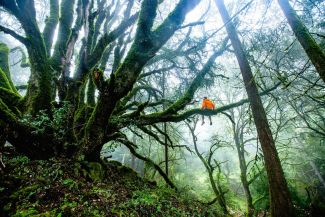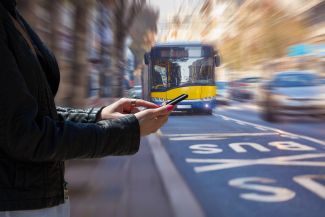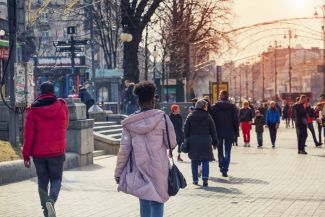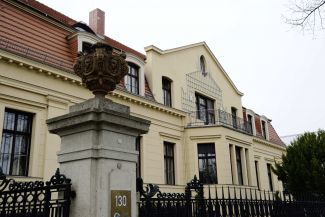Society: Social-Ecological Research
How must a sustainable economy, consumption or lifestyle be designed? Which new technologies, social initiatives or business models could develop into the major sustainability innovations of the future? And which political and economic frameworks have what sustainability impact? The Social-Ecological Research funding priority addresses these and other questions. It makes it clear that sustainable development can only be achieved if scientific-technical and social innovations are interlinked.
Current news also on Twitter: @soef_BMBF
Background
Societal transformation processes guided by the principle of sustainable development are the central focus of the Social-Ecological Research funding priority. It generates knowledge on central sustainability transformations such as sustainable urban and rural development, sustainable mobility or the transition to a sustainable economy. One aspect is also the promotion of young researchers, junior research groups conduct research on various topics mentioned above. The current and completed projects as well as the open announcements can be found here.
In addition to the thematic research projects, the BMBF promotes the identification of methods and quality standards for successful transdisciplinary research: Project TransImpact – Effective Transdisciplinary Research. TransImpact provides a platform for the linkage of actors in transdisciplinary research: tdAcademy.
Due to its complexity, Social-Ecological Research was conceived as a "learning" programme and developed further in a participatory agenda process: The SÖF funding priority started in 1999 with an exploratory phase. The first funding concept for SÖF was presented in 2000. In 2004/2005, an external panel of experts conducted an evaluation of the programme, the results of which were incorporated into the second funding concept in 2007. In 2011, a review of what has been achieved so far in the SÖF was carried out ("Lessons Learnt Workshop"). In 2012, the agenda conference on the further development of the funding priority was held. The results of the agenda process were incorporated into the third funding concept of Social-ecological Research "Funding Concept for Society-Related Sustainability Research".
In 2017 the second agenda process of Social-Ecological Research was launched. The focus is on developing new topics for the future. As in the last agenda process 2011/12, such research topics were developed in a technical discussion that took place in 2017. A series of topic papers were developed which were presented and discussed in 2018 in the online consultation "Shaping sustainability research - Help shape it!" On the basis of the online consultation, the discussion was continued at the Agenda Conference of Social-Ecological Research in September 2018 in Kassel.
NEWS FROM SOCIAL-ECOLOGICAL RESEARCH
THE PROJECTS News
Sustainable Urban and Neighborhood Development in the "Zukunftsstadt". Adaptation needs in planning instruments on the part of the federal and state governments - impulses from research
The Synthesis Paper * No. 5 of the BMBF accompanying project on "Zukunftsstadt and Urban Transformation" (SynVer*Z) has been published! The impulse paper is the result of the exchange of different Zukunftsstadt-projects on the topic "Legal adaptation needs in the planning instruments on the part of the federal government and the states". The aim of the paper is to summarize such results of the BMBF Zukunftsstadt-projects in a bundled form and to present them as impulses for discussion, which deal with the regulatory framework of sustainable urban development determined by the federal and state governments. After all, this framework decisively shapes the municipal scope for action. In some cases, reference is made to more far-reaching publications of the projects. The recommendations are addressed to relevant bodies at federal and state level, primarily to representatives of ministries in the fields of urban planning and development, but also to transport and financial policy. (Source: https://www.nachhaltige-zukunftsstadt.de/start/news/nachhaltige-stadt-und-quartiersentwicklung-zukunftsstadt/)
Living labs for urban transformation
Over the past few years, more than 50 research projects throughout Germany have conducted intensive research on the "Zukunftsstadt". During a networking meeting organized by the accompanying project SynVer*Z, the idea arose together with the projects to compile reports on experiences from living labs research with a view to practice.
The focus is on a reflection of the design of the projects, the applied methods in the cooperation with individual groups of actors and in constellations of actors, the experiences in dealing with the Covid19 pandemic as well as the conclusions with regard to stabilization and transfer. In the anthology, the authors provide guidance for the implementation of living labs. As part of their practical research work, they have developed many tools in the form of guidelines, work aids, fact sheets and toolboxes, in order to provide other municipal actors with action-oriented work aids. (Source: https://www.nachhaltige-zukunftsstadt.de/new/aktuelles/sammelband-reallabore/)
GAIA - Ecological perspectives for Science and Society
We regularly report on ongoing research initiatives, projects and new research questions in social-ecological research in the scientific journal GAIA - Ecological perspectives for Science and Society (oekom).
GAIA CONTRIBUTIONS from Social-Ecolgical Research: Archive (German)
Last updated on












